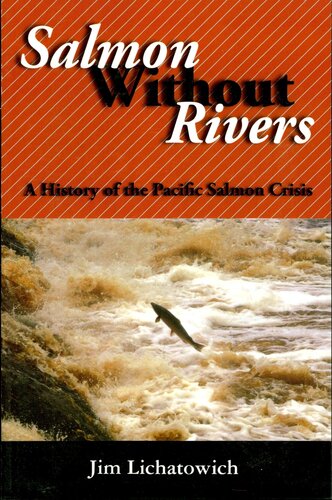

Most ebook files are in PDF format, so you can easily read them using various software such as Foxit Reader or directly on the Google Chrome browser.
Some ebook files are released by publishers in other formats such as .awz, .mobi, .epub, .fb2, etc. You may need to install specific software to read these formats on mobile/PC, such as Calibre.
Please read the tutorial at this link: https://ebookbell.com/faq
We offer FREE conversion to the popular formats you request; however, this may take some time. Therefore, right after payment, please email us, and we will try to provide the service as quickly as possible.
For some exceptional file formats or broken links (if any), please refrain from opening any disputes. Instead, email us first, and we will try to assist within a maximum of 6 hours.
EbookBell Team

4.1
60 reviews"Fundamentally, the salmon's decline has been the consequence of a vision based on flawed assumptions and unchallenged myths.... We assumed we could control the biological productivity of salmon and 'improve' upon natural processes that we didn't even try to understand. We assumed we could have salmon without rivers." —from the introduction
From a mountain top where an eagle carries a salmon carcass to feed its young to the distant oceanic waters of the California current and the Alaskan Gyre, salmon have penetrated the Northwest to an extent unmatched by any other animal. Since the turn of the twentieth century, the natural productivity of salmon in Oregon, Washington, California, and Idaho has declined by eighty percent. The decline of Pacific salmon to the brink of extinction is a clear sign of serious problems in the region.
In Salmon Without Rivers, fisheries biologist Jim Lichatowich offers an eye-opening look at the roots and evolution of the salmon crisis in the Pacific Northwest. He describes the multitude of factors over the past century and a half that have led to the salmon's decline, and examines in depth the abject failure of restoration efforts that have focused almost exclusively on hatcheries to return salmon stocks to healthy levels without addressing the underlying causes of the decline. The book:
Throughout, Lichatowich argues that the dominant worldview of our society — a worldview that denies connections between humans and the natural world — has created the conflict and controversy that characterize the recent history of salmon; unless that worldview is challenged and changed, there is little hope for recovery. Salmon Without Rivers exposes the myths that have guided recent human-salmon interactions. It clearly explains the difficult choices facing the citizens of the region, and provides unique insight into one of the most tragic chapters in our nation's environmental history.